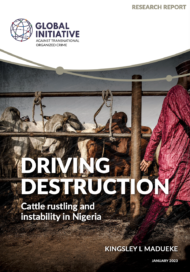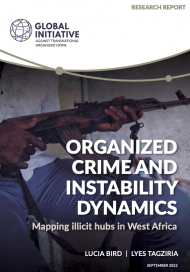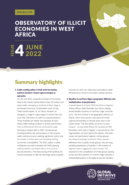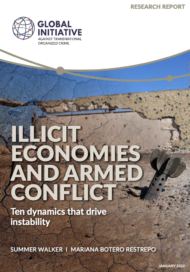Event Details
Where
Online event
Posted on 11 Jan 2023
Cattle rustling in Nigeria has evolved from a sustainable community practice into a significant illicit economy, delivering material profits to conflict actors and multiplying harms. Since 2011, the country has experienced a surge in the number of rustling incidents, resulting in thousands of deaths, loss of livelihoods, widespread destruction and displacement of people. This has had a debilitating impact on the country’s stability.
In Nigeria’s North-West and North-Central regions, in particular, cattle rustling has contributed to growing instability by increasing levels of violent crime. The Nigerian press is awash with stories of heavily armed groups raiding communities, killing people and stealing large herds of cattle. Also of note are the violent activities of the self-defense groups that have emerged in response. Additionally, in some of Nigeria’s most volatile regions, including Northern Plateau and Southern Kaduna, cattle rustling has fed into longstanding conflicts between farmers and herders, fuelling violence and deepening polarization.
Cattle rustling deserves attention because it is among the illicit economies most clearly driving instability in Nigeria, more so than others traditionally focused on as sources of instability, such as armed robbery and drug trafficking. The relationship between cattle rustling and instability is multifaceted: not only has the phenomenon been the cause of thousands of deaths, large-scale displacement of communities and destruction of livelihoods, but it has also repeatedly operated as a significant source of financing for armed groups, including regional insurgent groups operating in north-eastern Nigeria and northern and central Mali. Cattle rustling is also interwoven with longstanding tensions between ethnicities, amplifying these and catalyzing further conflict.
This report focuses on Zamfara and Plateau states, where cattle rustling has fuelled large-scale violence and instability over the past decade. The report also explores the concerning southward diffusion of cattle rustling, with an emphasis on Kwara and Oyo states. While some underlying causes of cattle rustling cut across regions, this research highlights that local drivers of cattle rustling and instability are often distinct and therefore require context-specific responses.
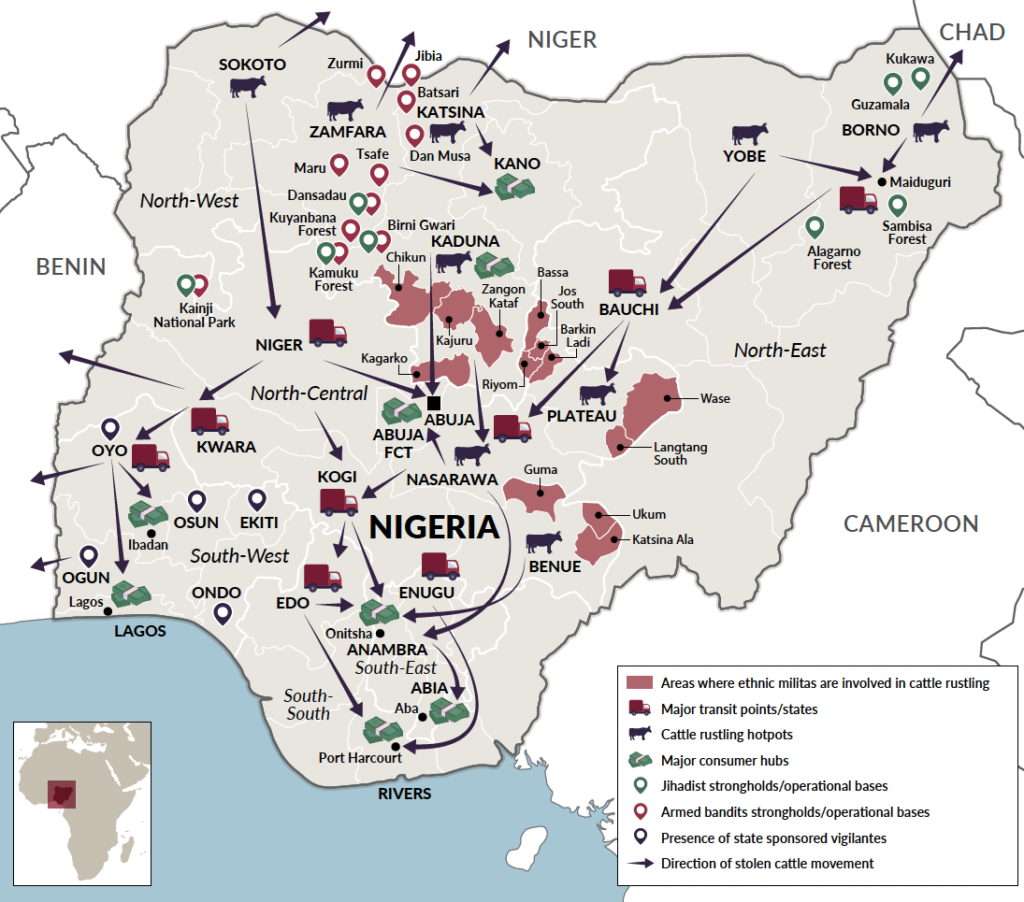
Importantly, cattle rustling is not a security concern only in Nigeria: its effects transcend national borders, with implications for regional stability in West Africa and the Sahel. Nigeria and Mali are the region’s two largest producers of cattle, and the epicentres of cattle rustling. However, the supply chains of stolen cattle connect armed groups, criminal networks and actors across West Africa.
The GI-TOC’s West Africa illicit hubs mapping initiative highlights cattle rustling’s important role as a driver of insecurity in the region. That study identified 280 hubs of illicit economies across 18 countries in West and Central Africa. Then, to each hub it applied the Illicit Economies and Instability Monitor (IEIM), a tool designed to assess the relative impact of the role played by illicit markets in fuelling conflict and instability. From this research, cattle rustling emerged as one of three accelerant markets – alongside arms trafficking and kidnapping for ransom – which appeared far more commonly in hubs where illicit economies were identified to play a significant role as vectors of instability (‘high-scoring hubs’), than in hubs where illicit economies did not play a significant role in driving instability (‘low-scoring hubs’). Cattle rustling featured as a major market in high-scoring hubs three times more often than in low-scoring hubs.
These findings also highlight how cattle rustling intersects with other organized criminal activities. The insecurity engendered by cattle rustling stimulates demand for arms, both from perpetrators and from communities seeking to defend themselves. Armed groups engaged in cattle rustling have repeatedly turned to other criminal activities, especially kidnapping for ransom, as cattle stocks deplete and opportunities for rustling narrow in the face of security measures and the displacement of herds due to insecurity.
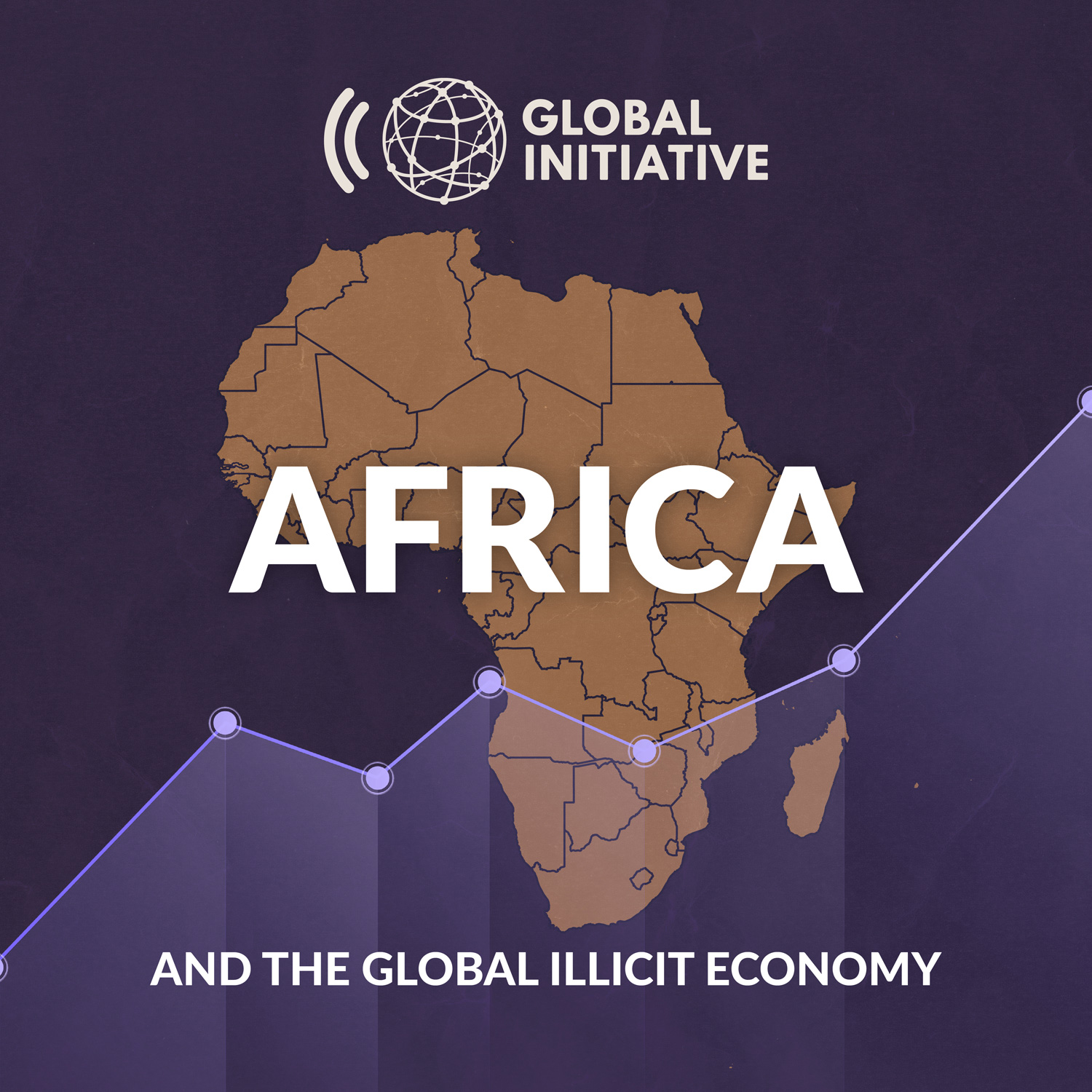
In this episode Lindy explores the world of cattle rustling in Mali, an act that has existed for centuries. But cattle rustling has evolved into a highly organized form of criminality involving Islamists and bandits, forcing farmers to arm themselves to protect themselves and their herds.
Presenter: Lindy Mtongana
Speaker: Deo Gumba, Civil Society Coordinator for the West Africa Observatory, Global Initiative Against Transnational Organized Crime
Additional Reading:
West Africa and the Sahel Observatory - Risk Bulletin
